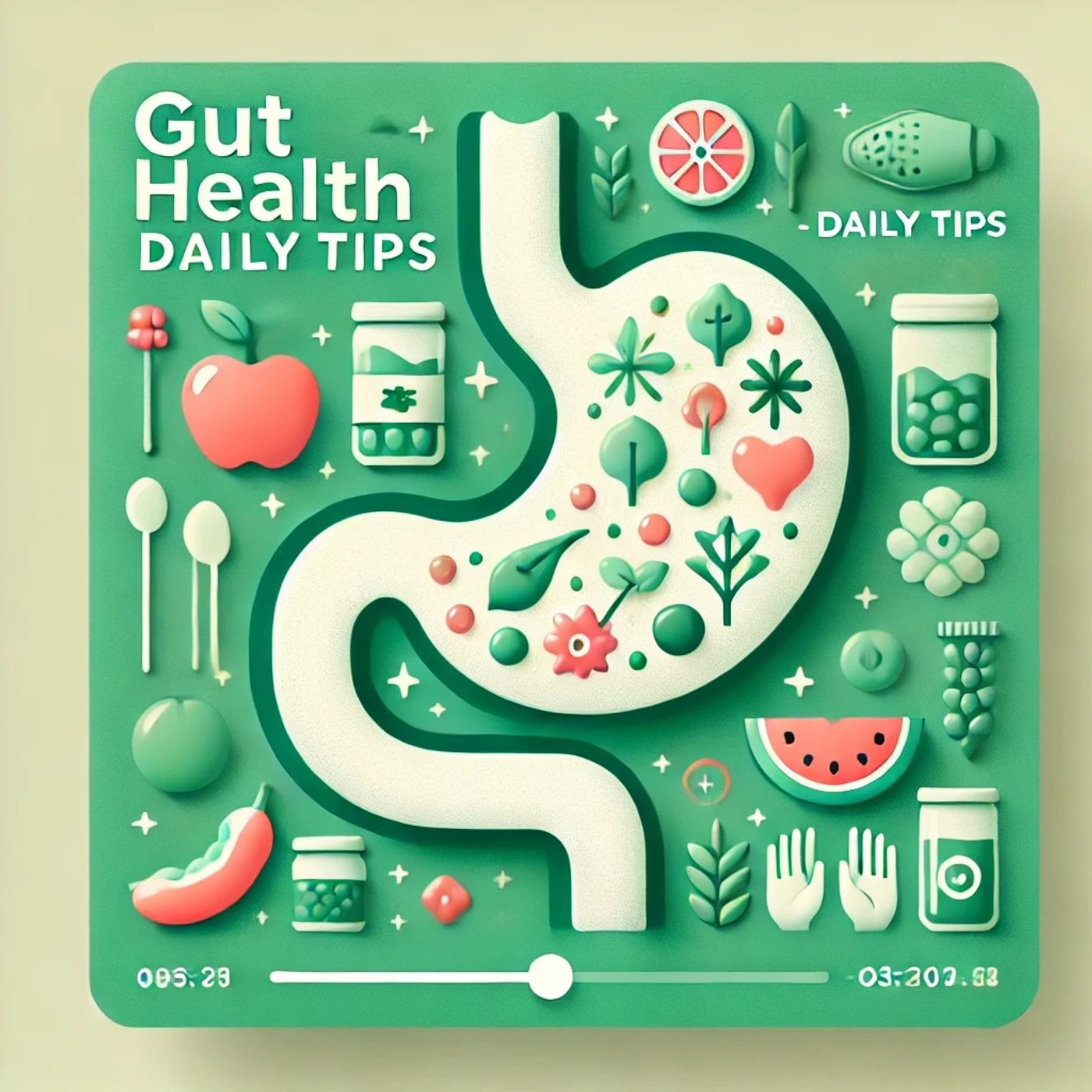Unlock Optimal Health: The Essential Guide to Maintaining a Thriving Gut
Update: 2025-09-15
Description
Maintaining a healthy gut is pivotal for our overall well-being, as the gut is intrinsically linked to various bodily functions, including digestion, immunity, and even mood regulation. A balanced gut contributes to effective nutrient absorption and acts as a barrier against pathogens, while also playing a role in producing essential neurotransmitters like serotonin. To optimize gut health, making informed dietary and lifestyle choices is key.
Firstly, diversity in your diet can significantly impact gut flora positively. Consuming a wide array of foods introduces different types of fiber and nutrients to your gut, promoting the growth of diverse bacteria. Incorporate fruits, vegetables, whole grains, nuts, and seeds into your meals to cultivate a rich microbial environment.
Fermented foods are another powerhouse for gut health improvement. Foods like yogurt, kefir, sauerkraut, kimchi, and kombucha are rich in probiotics, the beneficial bacteria that populate your gut. These probiotics help maintain a healthy microbial balance, which is crucial for digestive health and can alleviate issues like bloating and constipation. Regularly including these in your diet can boost your gut’s vitality.
In parallel, consider the benefits of prebiotics—non-digestible fibers that feed probiotics. Sources like garlic, onions, leeks, asparagus, and bananas provide these beneficial fibers. A symbiotic relationship between prebiotics and probiotics can foster a thriving gut ecosystem.
Moreover, adequate hydration is essential in facilitating digestion and nutrient absorption. Water supports the mucosal lining of the intestines and assists in the smooth passage of food through the digestive tract. Aim to drink at least eight glasses of water daily or more if you are physically active.
Exercise also plays a role in fostering a healthy gut. Regular physical activity promotes gut motility, which ensures food moves efficiently through your digestive system, preventing constipation. Furthermore, exercise has been found to increase gut microbial diversity, which is associated with better health outcomes.
Stress management cannot be overlooked when it comes to gut health. Stress can severely disrupt the gut’s microbial balance, aggravating issues like irritable bowel syndrome (IBS). Incorporating practices like yoga, meditation, or even daily walks can reduce stress and thereby alleviate its impacts on the gut.
Finally, mindful eating habits such as chewing food thoroughly, eating slowly, and paying attention to hunger cues can enhance digestion and prevent overburdening the digestive system. Listening to your body and avoiding overeating can contribute to overall gut health.
In conclusion, nourishing your gut involves a multifaceted approach that combines a varied diet, consumption of probiotics and prebiotics, regular physical activity, adequate hydration, and stress reduction. By embracing these habits, you support not just your gut, but your entire body’s health, laying a foundation for improved immunity, mood stability, and overall vitality.
For more http://www.quietplease.ai
Get the best deals https://amzn.to/3ODvOta
This content was created in partnership and with the help of Artificial Intelligence AI
Firstly, diversity in your diet can significantly impact gut flora positively. Consuming a wide array of foods introduces different types of fiber and nutrients to your gut, promoting the growth of diverse bacteria. Incorporate fruits, vegetables, whole grains, nuts, and seeds into your meals to cultivate a rich microbial environment.
Fermented foods are another powerhouse for gut health improvement. Foods like yogurt, kefir, sauerkraut, kimchi, and kombucha are rich in probiotics, the beneficial bacteria that populate your gut. These probiotics help maintain a healthy microbial balance, which is crucial for digestive health and can alleviate issues like bloating and constipation. Regularly including these in your diet can boost your gut’s vitality.
In parallel, consider the benefits of prebiotics—non-digestible fibers that feed probiotics. Sources like garlic, onions, leeks, asparagus, and bananas provide these beneficial fibers. A symbiotic relationship between prebiotics and probiotics can foster a thriving gut ecosystem.
Moreover, adequate hydration is essential in facilitating digestion and nutrient absorption. Water supports the mucosal lining of the intestines and assists in the smooth passage of food through the digestive tract. Aim to drink at least eight glasses of water daily or more if you are physically active.
Exercise also plays a role in fostering a healthy gut. Regular physical activity promotes gut motility, which ensures food moves efficiently through your digestive system, preventing constipation. Furthermore, exercise has been found to increase gut microbial diversity, which is associated with better health outcomes.
Stress management cannot be overlooked when it comes to gut health. Stress can severely disrupt the gut’s microbial balance, aggravating issues like irritable bowel syndrome (IBS). Incorporating practices like yoga, meditation, or even daily walks can reduce stress and thereby alleviate its impacts on the gut.
Finally, mindful eating habits such as chewing food thoroughly, eating slowly, and paying attention to hunger cues can enhance digestion and prevent overburdening the digestive system. Listening to your body and avoiding overeating can contribute to overall gut health.
In conclusion, nourishing your gut involves a multifaceted approach that combines a varied diet, consumption of probiotics and prebiotics, regular physical activity, adequate hydration, and stress reduction. By embracing these habits, you support not just your gut, but your entire body’s health, laying a foundation for improved immunity, mood stability, and overall vitality.
For more http://www.quietplease.ai
Get the best deals https://amzn.to/3ODvOta
This content was created in partnership and with the help of Artificial Intelligence AI
Comments
In Channel





